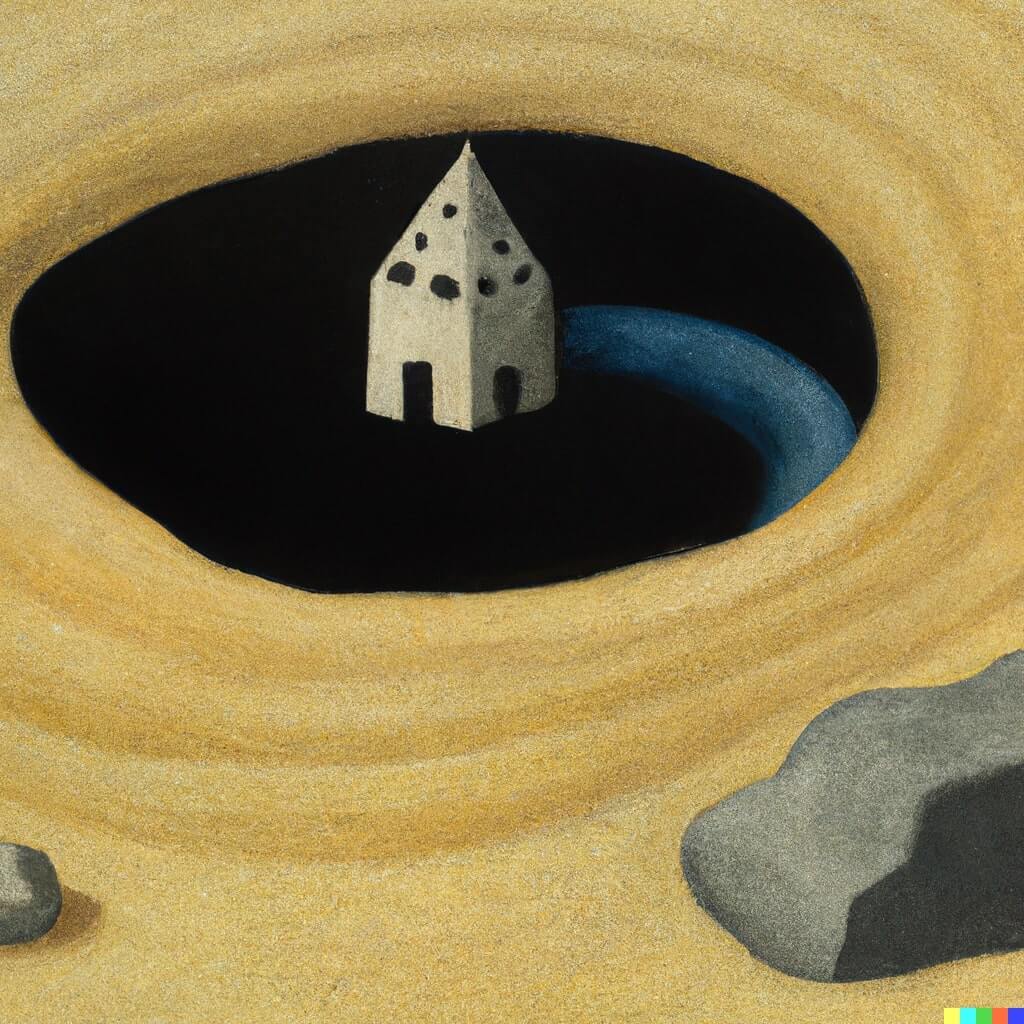Black holes, sandcastles and burning libraries
Orgy is commonly portrayed in pop culture media in the face of an inevitable apocalypse. The imminent end of times splits the average human into two: salvation by God and the descent to ultimate hedonism.
But isn’t the end in our real world already certain? In apocalyptic books and movies, we see the breakdown of human spirituality when the apocalypse is X weeks or months later. Nothing humans do matters anymore, so humans abandon their morality to pursue primordial pleasures.
Our world will also end. The amount of matter and energy is finite in our Universe. Our human civilisation is an interstellar car cruising the dry cosmic deserts, occasionally refuelling from the oases: fusion-powered stellar neighbourhoods. But stars are finite in fuel and will perish too. Desperate, we can extract the rotational energy from their remnants: black holes, but even black holes themselves are shown to be evaporating until they explode into a burst of pure energy.
It seems that the only certain tombstones in the near end of times are the black dwarfs and dim lit planets. Humanity can feed on them with artificial fusion, but the trillions of years savaged are still limited by the limited quantity of their numbers in the Universe.
The end of the Universe is inevitable. The resources of the Universe are finite and cannot be replenished. Entropy will increase until the Universe is in total disorder. We can’t slide down the energy well if we have already reached the ground bottom. The major religions suggest the end of the world, science confirms it.
But we are not having orgies every day.
People find purposes in their lives to justify their sufferings or their mere existence. Builders of the world, why? Why are you advancing science, improving medicine, and always striving for better policies and a better world? Do you not realise that the heart and soul you pour into will be demolished at the end of times, and possibly much sooner in the downfall of the human civilisation? Are we children building sandcastles, ignorant of the high tides?
But children do it for fun.
You will die. Your descendants, if any, will die and perish. Your bloodline will undoubtedly end. There will only be a finite number of people sharing your DNA who will die. There will be the last living copy of your DNA, and it too will be gone. Your legacy will be forgotten. You will not be remembered, nor will Isaac Newton or Charles Darwin. The visitors of the beach tomorrow will not see the sandcastles washed away overnight, nor will they see your phantoms in the featureless sands.
So why are we not having orgies every day? Are we ignorant of the end of times? Do we not care whether what we do makes a difference? Did you make a difference if you donated a book to a library that will burn down tomorrow?
No, sorry. You would not have made a difference. But if the library does not burn for some time, maybe not for a few years, then there might be people who benefited from your donated book. They might get enlightened. They might have gotten a laugh from the jokes inside. They might find conversation topics that they will hide in their subconscious and bring up a few years later in their date with who will be their eventual partners. You might have made a significant yet subtle difference in their lives.
This is if you donated a book. What if you consciously do good? What if you build a product that makes people’s lives easier? What if you contributed a data analysis that brought humans one step closer to fusion? What if you manufactured an ultra-strong nano-material that eventually becomes a component in a cable of humanity’s first space elevator? What if you smiled and said hello, and made someone’s day a bit brighter?
Some people do frequently have orgies at this age. Some people instead spend their lives making themselves better. Some people spend their lives making people around them better. Some people spend their lives making people after them better. Perhaps the empirical, shallow answer to life is to enjoy it, whether via sex, via the fulfilment of making the world better, or via any other mechanisms that trigger dopamine release.
A man is calm in the face of his death in the old. The civilisations, too, will gently bow to death’s stature.
